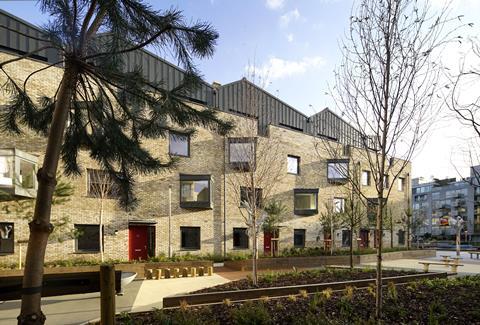Peabody leads charge to tempt environmental and social impact investors to back affordable home development
A group of housing associations are targeting the £2 trillion market for sustainable investment in a bid to secure new cash for development.

The initiative, led by housing association Peabody with support from major developing associations Clarion, Optivo and Sovereign, aims to develop a standard way to measure environmental and social benefits provided by association in order that the sector can better attract investors in “sustainable” assets.
The Investment Association estimates that the size of the UK sustainable investment market to be £2 trillion, with more than a fifth of all UK institutional investments in so-called “sustainable” assets.
However, while UK housing associations deliver environmental and social benefits, there is no standard way of reporting or comparing what they do, making it much harder for the sector to capitalise on the desire from institutions to fund such activities.
A report published today on the issue from Peabody and compiled by researchers Centrus and the Good Economy, proposes 10 themes and 45 metrics for investors to use and measure the environmental, social and governance performance – known by investors as ESG – of housing associations. Factors proposed include housing affordability, the extent to which residents have a voice, and how staff wellbeing is prioritised.
Associations have in recent years increasingly looked to the capital markets for funding as grants from government have reduced, with the amount privately raised increasing from £16bn in 2013 to £39bn last year.
Mark Davie, head of social housing at the biggest institutional investor in social housing, M&G Investments, part of the £352 billion London Stock Exchange listed M&G Plc, said that ESG was now at the forefront of investor’s minds and “increasingly influences their investment decisions.”
He said: “Housing associations are generally very good at and on top of ESG but less good at reporting it. This project is very timely and exciting.”
Gordon More, chief investment officer at Homes England said the initiative supported its work to unlock private capital for the sector from institutional investors in order to deliver more new homes. He said: “ESG factors play an increasingly significant part of many investors’ strategies with many explicitly seeking to invest with impact alongside financial returns. Affordable housing is uniquely placed to meet these investor objectives, particularly given its clear impact on social outcomes.”

Brendan Sarsfield, chief executive of Peabody (pictured, left), said: “We want to continue building as many new homes for social rent as we can, and we know that investors and lenders share our goals. We help alleviate poverty, create jobs and prosperity, increase health and wellbeing, and support young people. We make a real social and economic impact.
“The approach to ESG reporting outlined in this report is an excellent starting point for us to demonstrate our value more effectively and generate the funds to make the most impact.”
Peabody said that by increasing private capital flows to complement public investment in social housing, it is hoped the project can help shape a better and fairer economy and society after the country emerges from lockdown










No comments yet